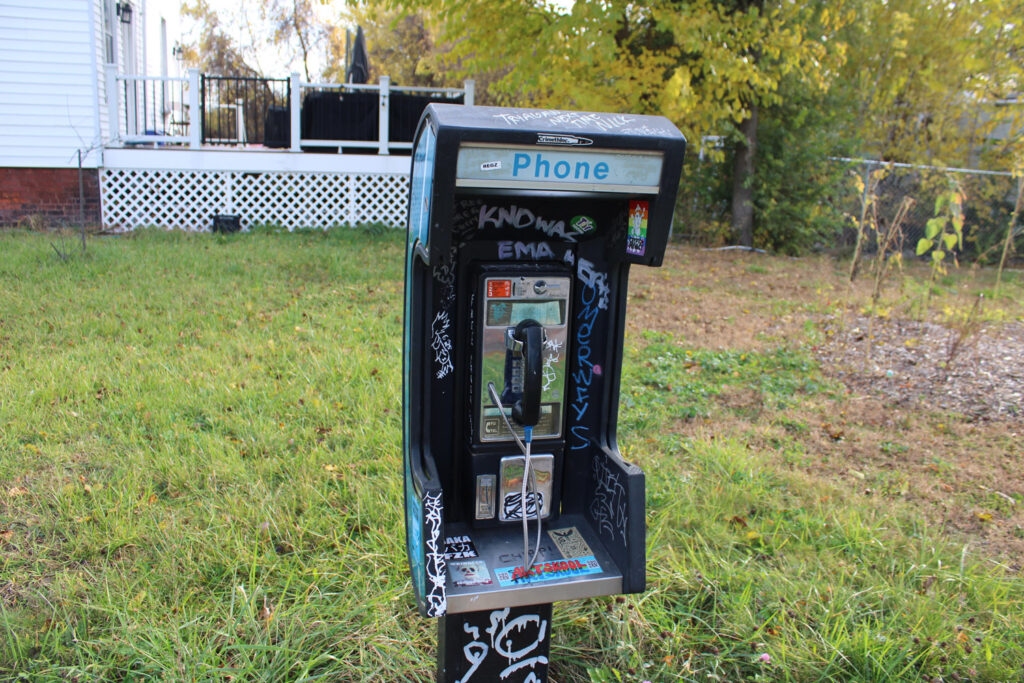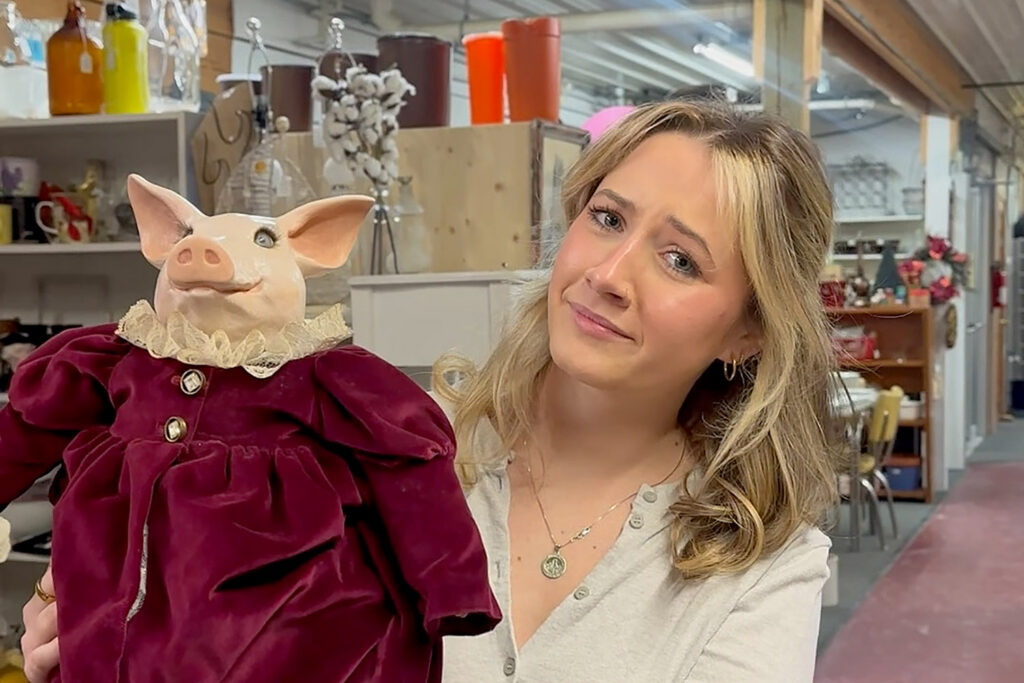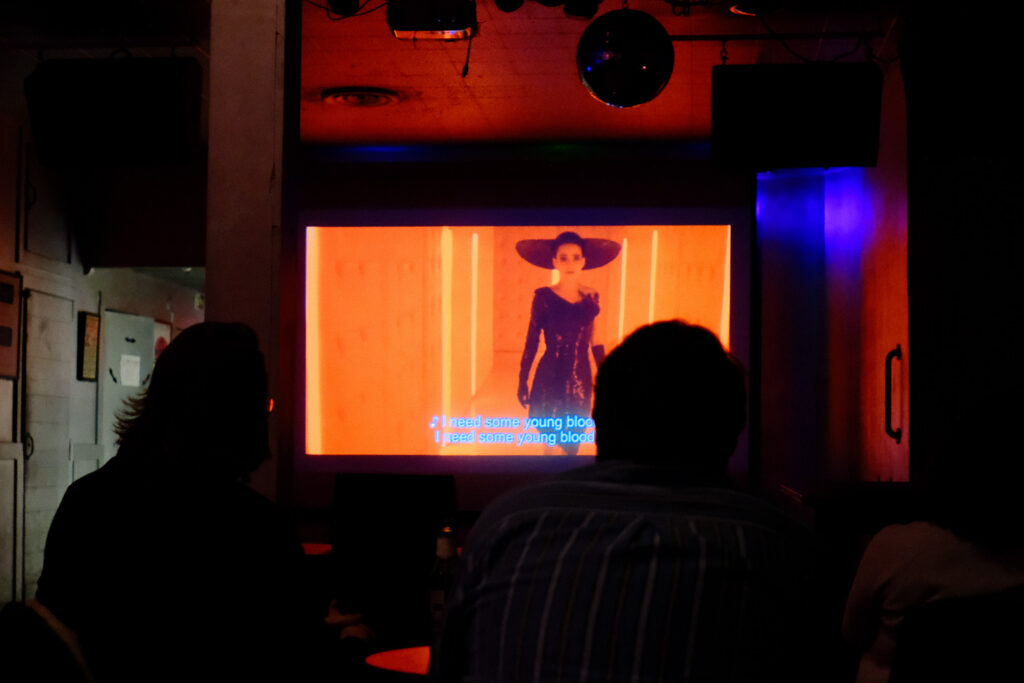Detroit — Michigan was once home to about 60,000 pay phones, but now that almost all of us carry a phone in our pocket, we’re down to less than a handful. Most of those are in court buildings and jails.
The last pay phone in Detroit, however, is not. It’s in the middle of a random neighborhood on the city’s west side, right near the sidewalk in somebody’s yard. It’s covered in graffiti, as you might expect, and there’s a folding chair sitting next to it so you can relax while you’re having a conversation.
And although it looks like a pay phone, it’s actually free to use. Totally free. You just pick up the receiver, press “1,” and then dial any number in the U.S. you want. You can call anyone you want and talk as long as you want. All for free.
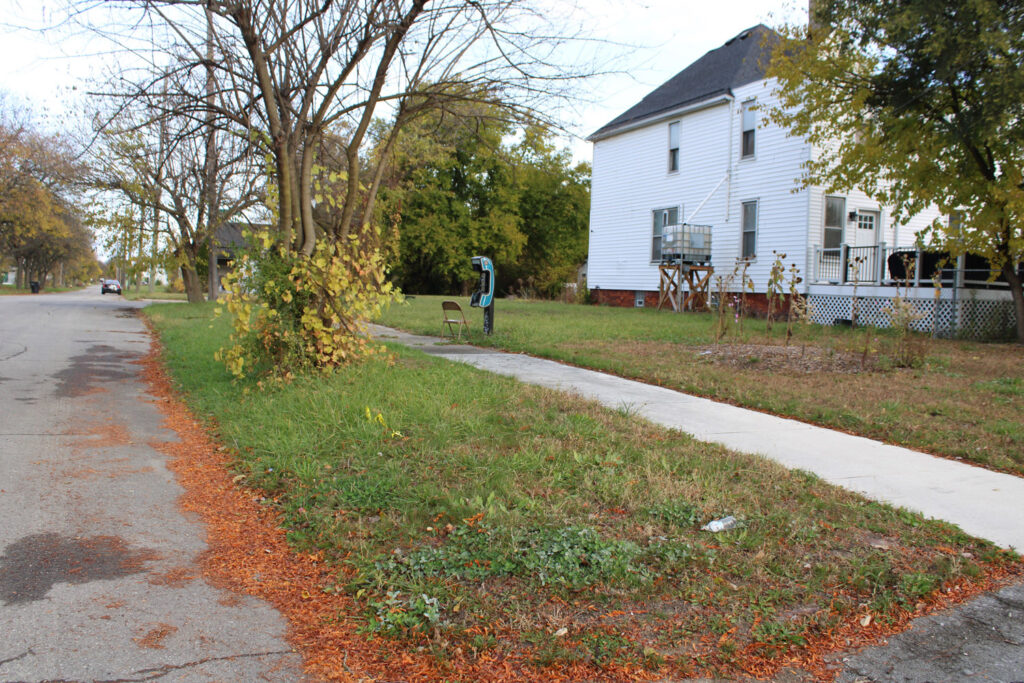
Who put it there, when did it get there, and who’s paying for all of this?
The phone was installed in 2019 at the intersection of 23rd Street and Breckenridge Avenue in Detroit’s Core City neighborhood by an Oregon nonprofit called Futel. The organization was started in 2014 by a guy from Portland named Karl Anderson, an artist who lamented the fact that everyone was tied to the little device in their hand.
“You look around and see everyone looking at their little pocket computers,” he said in a 2015 article. “They have this posture of suffocation.”
Anderson also thought there was a certain artistic elegance that pay phones had, so he teamed up with a friend named Elijah St. Clair to bring them back into our world. They acquired a bunch of old pay phone hardware and repurposed it. They also wanted to make sure that all the calls could be free, so that people who didn’t have a phone or couldn’t afford one could stay connected to the world.
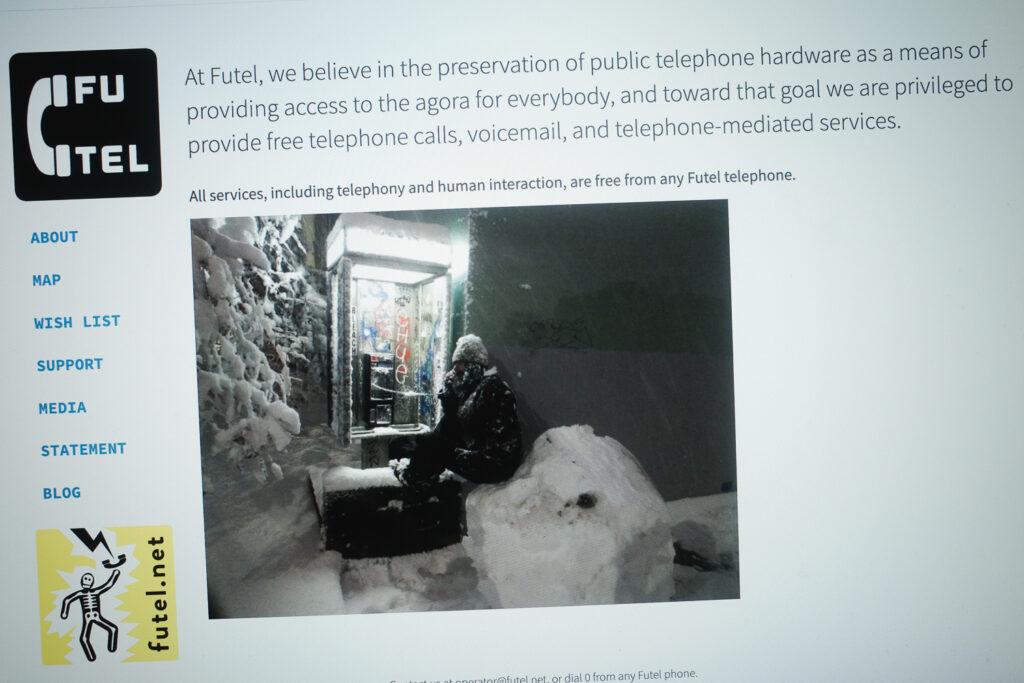
As they say on their website, “At Futel, we believe in the preservation of public telephone hardware as a means of providing access to the agora for everybody, and toward that goal we are privileged to provide free telephone calls, voicemail, and telephone-mediated services. We do not judge the motivations of our users, or who they choose to call. Denial of telephony services has long been a tactic used against undesirable populations, and our devices will counteract that. But more importantly, we will help to establish a new era of communication, one in which reaching out is not only desirable, but mandatory.”
So about 10 years ago, they installed a bunch of free pay phones all around Portland. Then they put two of them in the state of Washington—one in Seattle and one in the town of Long Beach.
Then in 2019, they came to Michigan of all places. Anderson said that somebody in Detroit heard about his project and reached out, so they installed one there. It’s been working just fine ever since, serving the “unphoned” residents of the community.
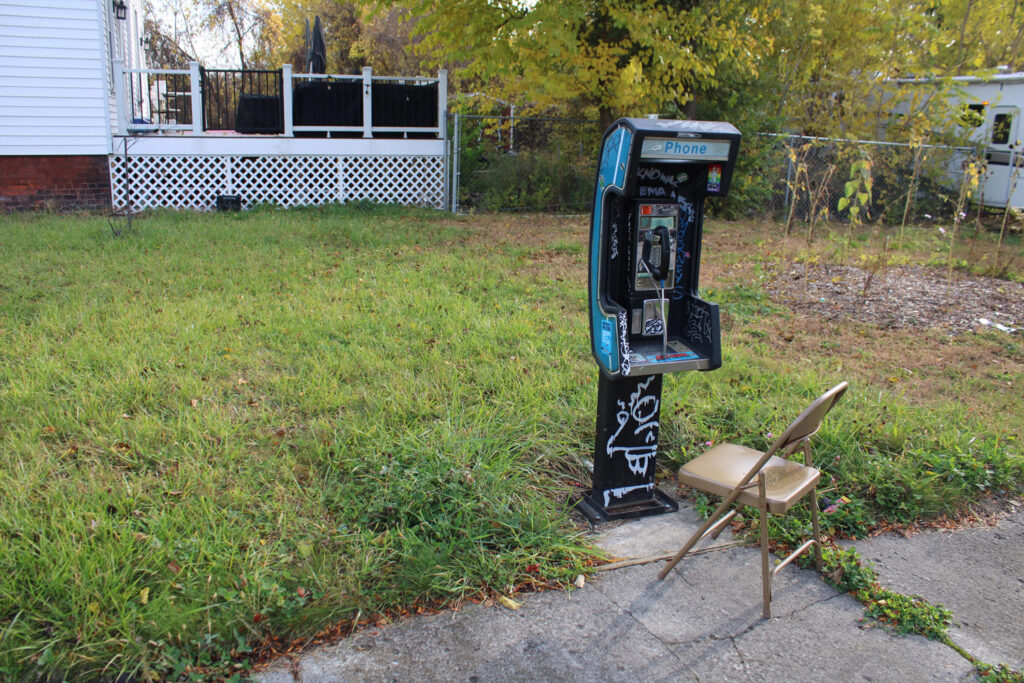
There’s also quite randomly a Futel free pay phone in downtown Ypsilanti, at 209 Pearl Street. And that’s the extent of their network: 18 free phones in Portland, two in the state of Washington, and two in Michigan.
Anderson doesn’t say how much this all costs, but he says that donors and volunteers cover everything. He lists a number of Oregon nonprofits on his website as supporters.
When I visited the Detroit pay phone, there was nobody there using it, so I went up and gave it a try. I dialed my own number, and it worked just fine.
I can’t remember the last time I had used a pay phone—maybe 20 or 25 years ago?—and there was something so nostalgic and retro about picking up the receiver, hearing the dial tone, and then hearing the “beep, beep, beep” as I dialed my number. It’s like a 20th-century museum piece right there in the middle of Detroit.
If you want your kids or grandkids to know what an old pay phone looks like, sounds like, and feels like, I highly recommend a field trip. You can even explain the concept of making a collect call to your parents when you didn’t have a quarter in your pocket.
Buddy Moorehouse teaches documentary filmmaking at Hillsdale College.
